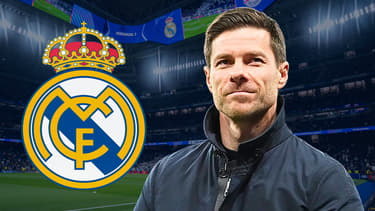Real Madrid’s Pursuit of Liverpool’s Ibrahima Konaté: A Transfer Saga Unfold

As the transfer window enters its final phase in August 2025, Real Madrid finds itself at the center of yet another high-profile pursuit that could reshape both their defensive lineup and the broader European football landscape. The Spanish giants, under the astute management of Xabi Alonso, are reportedly closing in on what could be described as a sensational acquisition from one of their fiercest European rivals: Liverpool’s commanding center-back, Ibrahima Konaté.
This potential transfer represents more than just another addition to Real Madrid’s already impressive roster. It symbolizes the ongoing evolution of European football’s transfer market, where even the most established partnerships between clubs and players can be disrupted by the right combination of timing, financial incentive, and sporting ambition. The pursuit of Konaté also highlights Real Madrid’s continued commitment to strengthening their squad depth, even after a summer that has already seen significant investment in new talent.
The 2025 summer transfer window has been nothing short of transformative for Real Madrid. With Xabi Alonso at the helm, the club has demonstrated remarkable ambition and strategic thinking, investing approximately €170 million in new talent. This substantial outlay reflects not only the club’s financial strength but also their determination to maintain their position at the pinnacle of world football.
The arrival of Dean Huijsen represents a significant coup for Los Blancos. The young defender, who has been making waves across European football with his impressive performances, brings a combination of physicality, technical ability, and tactical intelligence that perfectly aligns with Alonso’s vision for the team. His acquisition demonstrates Real Madrid’s commitment to securing the brightest young talents before they reach their peak market value.
Alvaro Carreras, another defensive addition, provides additional depth and competition in the full-back positions. His versatility and attacking contribution from wide areas make him an ideal fit for Alonso’s tactical system, which demands that defenders contribute significantly to the team’s offensive play. The signing reflects the modern evolution of football, where traditional positional boundaries continue to blur.
Perhaps most notably, the acquisition of Trent Alexander-Arnold from Liverpool has sent shockwaves through the football world. The England international’s move to the Spanish capital represents one of the most significant transfers of the window, bringing world-class creativity and set-piece expertise to Real Madrid’s defensive unit. His familiarity with Liverpool’s playing style and inside knowledge of their tactical approaches could prove invaluable in potential future encounters between the clubs.
Despite this impressive summer recruitment drive, Xabi Alonso remains convinced that his squad requires one final addition to reach its optimal composition. That missing piece, according to sources close to the club, is Ibrahima Konaté, the French international center-back who has become one of Liverpool’s most dependable defensive performers since his arrival from RB Leipzig.
Konaté’s profile as a player makes him an almost irresistible target for Real Madrid. Standing at an imposing height, the Frenchman possesses the aerial dominance that has become increasingly crucial in modern football. His ability to win headers in both defensive and offensive situations provides teams with a significant tactical advantage, particularly in set-piece scenarios where margins for error are minimal.
Beyond his physical attributes, Konaté has demonstrated exceptional ball-winning capabilities throughout his time at Liverpool. His reading of the game, combined with his timing in tackles and interceptions, has made him a cornerstone of Liverpool’s defensive structure. These qualities have not gone unnoticed by Real Madrid’s scouting network, who have been monitoring his performances closely over the past seasons.
Perhaps most importantly from Alonso’s perspective, Konaté possesses the mental fortitude and professional attitude that defines elite-level defenders. His composure under pressure, leadership qualities, and ability to organize defensive lines align perfectly with the standards expected at the Santiago Bernabéu. This combination of physical gifts and mental strength makes him an ideal candidate for Real Madrid’s defensive revolution
The timing of Real Madrid’s interest in Konaté is far from coincidental. The French defender finds himself in the final year of his contract with Liverpool, a situation that significantly alters the dynamics of any potential transfer negotiation. This contractual reality creates a unique window of opportunity for interested clubs, as Liverpool faces the prospect of losing a valuable asset for nothing if they cannot secure his signature on a new deal.
Reports suggest that negotiations between Liverpool and Konaté’s representatives have made minimal progress toward a contract extension. This lack of movement has raised questions about the player’s long-term commitment to the Merseyside club and his potential openness to exploring new opportunities. For a player of Konaté’s caliber, the prospect of joining Real Madrid represents the pinnacle of football achievement, making it an almost irresistible proposition.
The contractual situation also places Liverpool in an increasingly precarious position. As a club that prides itself on shrewd business dealings and maximizing the value of its assets, allowing Konaté to leave on a free transfer would represent a significant financial loss. The Reds have historically demonstrated a willingness to sell players in the final year of their contracts rather than risk losing them for nothing, as evidenced by several high-profile departures in recent years.
This reality has not escaped the attention of Real Madrid’s transfer strategists, who recognize that Liverpool’s financial pragmatism could work in their favor. By positioning themselves as serious bidders for Konaté’s services, Los Blancos are essentially forcing Liverpool’s hand, creating pressure for a resolution one way or another
The potential departure of Konaté appears to be anticipated by Liverpool’s hierarchy, with the club already positioning itself to address the resulting gap in their defensive ranks. Arne Slot, who has brought his own tactical philosophy to Anfield, seems prepared to reshape the defensive structure to align with his vision for the team’s future.
The reported interest in Marc Guehi from Crystal Palace signals Liverpool’s proactive approach to squad planning. Guehi, who has established himself as one of the Premier League’s most promising young defenders, would represent a natural replacement for Konaté. His Premier League experience, combined with his age profile and potential for further development, makes him an attractive target for a club that has historically excelled at identifying and nurturing young talent.
The financial arithmetic of this potential double transfer also makes considerable sense from Liverpool’s perspective. The sale of Konaté could generate sufficient funds to complete the Guehi acquisition while potentially leaving room for additional investments in other areas of the squad. This approach exemplifies the modern football business model, where clubs must constantly balance sporting ambition with financial sustainability.
Slot’s tactical preferences may also influence Liverpool’s willingness to consider Konaté’s departure. Different managers often have varying requirements for their defensive personnel, and it’s possible that Guehi’s playing style and attributes align more closely with Slot’s vision than Konaté’s current skill set. This tactical consideration could prove decisive in determining the ultimate outcome of the transfer saga.
The financial aspects of Konaté’s potential transfer reveal the complex dynamics that characterize modern football negotiations. Liverpool’s reported asking price of €40 million reflects both the player’s established value in the current market and their desire to maximize returns on their investment. This valuation appears reasonable when compared to recent transfers involving defenders of similar age, experience, and ability.
Real Madrid’s initial offer of €25 million represents a classic opening gambit in transfer negotiations. By starting significantly below Liverpool’s asking price, Los Blancos are testing the Reds’ resolve while leaving room for incremental increases during the negotiation process. This approach has served Real Madrid well in previous transfer dealings, often resulting in favorable outcomes for the Spanish club.
The €15 million gap between Liverpool’s asking price and Real Madrid’s initial offer creates the framework for what promises to be intense negotiations. Both clubs understand that the final transfer fee will likely settle somewhere between these two figures, with various factors potentially influencing the eventual compromise.
Konaté’s current Estimated Transfer Value (ETV) of €40.4 million, with a range spanning from €36.3 million to €44.4 million, provides independent validation of Liverpool’s pricing strategy. This algorithmic valuation, based on performance data, age, contract length, and market trends, suggests that Liverpool’s demands are grounded in realistic market expectations rather than emotional attachment to the player.
The potential acquisition of Konaté would serve multiple strategic purposes for Real Madrid beyond simply adding another talented defender to their ranks. First and foremost, it would provide Xabi Alonso with additional tactical flexibility in his defensive configurations. The ability to rotate between different center-back partnerships without compromising quality would be invaluable across a demanding season that includes domestic, European, and potentially international competitions.
Konaté’s specific skill set also addresses some tactical requirements that Alonso may have identified in his current squad. His aerial dominance could prove particularly valuable in defending set pieces, an area where even minor improvements can have significant impacts on overall defensive performance. Similarly, his ball-winning capabilities would enhance Real Madrid’s ability to regain possession quickly and launch counter-attacks.
The psychological impact of securing a player of Konaté’s caliber from a direct European rival should not be underestimated. Such transfers often carry symbolic weight that extends beyond the immediate tactical benefits, demonstrating Real Madrid’s continued ability to attract top talent from even the most successful clubs. This reputation for securing elite players helps maintain the club’s status and attractiveness to future transfer targets.
From a squad management perspective, Konaté’s arrival would create healthy competition among Real Madrid’s defensive options. This internal competition typically drives all players to maintain higher performance standards, as they understand that their positions in the starting lineup are never guaranteed. The resulting improvement in training intensity and match performance often benefits the entire team.
Liverpool faces a complex decision regarding Konaté’s future that encompasses both sporting and financial dimensions. From a purely sporting perspective, losing a defender of Konaté’s quality represents a significant blow to their defensive capabilities. His partnership with other center-backs has been instrumental in Liverpool’s recent success, and his departure would necessitate a period of adjustment as new defensive partnerships are formed.
However, the financial reality of modern football cannot be ignored. Allowing Konaté to leave on a free transfer in twelve months would represent a substantial loss of asset value for a club that operates under careful financial constraints. Liverpool’s business model has historically relied on maximizing the value of player sales to fund ongoing squad improvements, making the Konaté situation particularly challenging.
The club’s previous experience with similar contract situations provides some guidance for their decision-making process. Liverpool has demonstrated both flexibility and firmness in different circumstances, sometimes choosing to cash in on players approaching the end of their contracts and other times fighting to retain key personnel regardless of financial considerations.
The emergence of alternative targets like Marc Guehi suggests that Liverpool’s sporting leadership believes adequate replacements can be identified and secured. This confidence in their recruitment processes may make them more willing to consider Konaté’s departure, particularly if the financial terms prove favorable.
The comparison with Trent Alexander-Arnold’s transfer situation provides fascinating insights into how both clubs approach these delicate negotiations. Real Madrid’s initial approaches for Alexander-Arnold were characterized by a patient, persistent strategy that ultimately yielded results, albeit at a higher cost than they might have preferred.
Liverpool’s handling of the Alexander-Arnold situation demonstrated their commitment to extracting maximum value from player sales, even when facing the pressure of potential free transfers. Their willingness to hold firm on their valuation ultimately resulted in a €10 million transfer fee, despite Alexander-Arnold being in the final month of his contract.
This precedent suggests that Liverpool will not be easily swayed by Real Madrid’s initial €25 million offer for Konaté. The Reds’ track record indicates they are prepared to engage in prolonged negotiations, confident in their ability to maintain their asking price or secure a compromise that satisfies their financial objectives.
However, the Alexander-Arnold situation also revealed Real Madrid’s determination and patience in pursuing their targets. Their willingness to wait until the final stages of a player’s contract demonstrates a strategic approach that prioritizes long-term objectives over immediate gratification. This patience often pays dividends, as it did in securing Alexander-Arnold’s services.
Xabi Alonso’s tactical philosophy at Real Madrid has emphasized defensive solidity while maintaining the club’s traditional commitment to attacking football. The integration of Konaté into this system would likely see the Frenchman taking on a crucial role in the team’s defensive structure, providing the foundation that allows other players to express themselves offensively.
Konaté’s aerial strength would be particularly valuable in Alonso’s system, which often requires defenders to deal with a high volume of crosses and set-piece situations. His ability to win headers consistently would provide additional security in defensive situations while also creating opportunities for the team to launch quick counter-attacks from defensive positions.
The French international’s ball-winning capabilities would complement Real Madrid’s high-pressing approach, allowing the team to regain possession higher up the field and create immediate scoring opportunities. His reading of the game and anticipation skills would be crucial in breaking up opposition attacks before they can develop into dangerous situations.
Perhaps most importantly, Konaté’s experience in high-pressure situations would prove invaluable for Real Madrid in crucial matches. His Champions League experience with Liverpool has exposed him to the highest levels of European competition, providing him with the mental tools necessary to perform consistently in Real Madrid’s demanding environment.
The pursuit of Konaté occurs within a broader context of evolving transfer market dynamics that have characterized the 2025 summer window. Clubs across Europe have demonstrated increased willingness to invest heavily in defensive personnel, recognizing that solid defensive foundations are essential for sustained success in modern football.
The inflation in defender valuations has been particularly pronounced for center-backs who combine physical dominance with technical ability. Players like Konaté, who excel in both aerial duels and ground-based defensive actions, command premium prices in the current market. This trend reflects the tactical evolution of football, where defenders are expected to contribute across multiple phases of play.
Real Madrid’s approach to the transfer market has traditionally combined patience with decisive action when opportunities arise. Their strategy of identifying targets early and maintaining consistent interest often proves successful, as it allows them to position themselves advantageously when circumstances change in their favor.
The timing of their pursuit of Konaté demonstrates this strategic thinking. By making their interest known while the player remains under contract, Real Madrid creates leverage for future negotiations while also signaling their serious intent to potential rivals for his signature.
In modern football transfers, the player’s personal preferences and career ambitions often prove decisive in determining outcomes. Konaté’s perspective on his future will likely play a crucial role in shaping the final resolution of this transfer saga. The opportunity to join Real Madrid represents a chance to compete at the highest levels of European football while potentially securing improved personal terms.
The allure of playing for Real Madrid extends beyond mere financial considerations. The club’s history, prestige, and consistent presence in major competitions create an environment that appeals to ambitious players seeking to maximize their career achievements. For Konaté, the prospect of winning Champions League titles and competing for major honors could prove irresistible.
However, the defender’s relationship with Liverpool and his appreciation for the club’s project under Arne Slot cannot be discounted. Players often develop strong emotional connections to their clubs, particularly when they have experienced significant success and personal development during their tenure. Konaté’s final decision may ultimately depend on his assessment of where he can best achieve his personal and professional objectives.
The influence of his international teammates and their experiences at various clubs may also factor into his decision-making process. Conversations with French national team colleagues who have played for Real Madrid could provide valuable insights into the daily realities of life at the Santiago Bernabéu.
Liverpool’s apparent preparation for Konaté’s potential departure reveals sophisticated squad planning that extends beyond immediate reactive measures. The identification of Marc Guehi as a potential replacement suggests that the club’s recruitment team has been developing contingency plans for various scenarios involving key players.
Guehi’s profile as a replacement for Konaté demonstrates Liverpool’s commitment to maintaining their defensive standards while potentially reducing the average age of their backline. The Crystal Palace defender has shown remarkable consistency in the Premier League, displaying the kind of reliable performances that have become synonymous with Liverpool’s defensive approach under various managers.
The financial structure of Liverpool’s potential Guehi pursuit, funded primarily through Konaté’s sale, reflects the club’s disciplined approach to transfer spending. This strategy allows them to strengthen their squad while maintaining financial balance, avoiding the kind of unsustainable spending that has affected other major clubs.
Liverpool’s succession planning also extends to their tactical evolution under Arne Slot. The Dutch manager’s preferences for certain defensive characteristics may differ from those of his predecessors, making some adjustments to the defensive personnel both logical and necessary. This tactical evolution could actually make Konaté’s departure more palatable from a sporting perspective.
The potential transfer of Konaté from Liverpool to Real Madrid would have ripple effects throughout European football, influencing both the immediate competitive balance and longer-term market dynamics. Such high-profile movements between elite clubs often trigger chain reactions that affect multiple leagues and competitions.
For the Premier League, losing another top-quality player to Real Madrid would reinforce concerns about the division’s ability to retain its biggest stars when faced with approaches from Europe’s traditional powerhouses. The departure would also potentially weaken one of the league’s strongest teams, potentially altering the competitive landscape for the upcoming season.
The transfer would also impact the Champions League, where both Liverpool and Real Madrid are expected to be major contenders. The strengthening of Real Madrid’s defensive options could enhance their prospects in the competition, while Liverpool’s need to integrate a new center-back partnership might create temporary vulnerabilities that other teams could exploit.
From a market perspective, a successful €40 million transfer for Konaté would set important precedents for similar players in comparable contractual situations. The final fee agreed between the clubs could influence future negotiations involving defenders with one year remaining on their contracts.
The current standoff between Liverpool’s €40 million asking price and Real Madrid’s €25 million initial offer creates the foundation for what promises to be a fascinating negotiation process. Both clubs possess significant experience in high-stakes transfer discussions, with established strategies and red lines that will shape their approach.
Real Madrid’s confidence that Marc Guehi’s potential arrival at Liverpool could influence the Reds’ stance demonstrates sophisticated understanding of the interconnected nature of modern transfer dealings. By monitoring Liverpool’s other transfer activities, Los Blancos are positioning themselves to capitalize on any developments that might create urgency for Liverpool to conclude Konaté’s sale.
The negotiation process will likely involve multiple rounds of offers and counter-offers, with both clubs seeking to maximize their respective positions. Real Madrid may gradually increase their bid while seeking to include performance-related add-ons that could satisfy Liverpool’s financial objectives without requiring immediate full payment.
Liverpool’s response will depend largely on their assessment of Konaté’s commitment to the club and their confidence in securing alternative defensive options. If they become convinced that the player’s heart is set on joining Real Madrid, they may become more flexible in their negotiating position.
Behind the financial figures and tactical considerations lies the human dimension of this potential transfer, involving relationships, loyalties, and personal aspirations that often prove decisive in determining outcomes. Konaté’s connection to Liverpool extends beyond mere professional obligations, encompassing friendships with teammates, relationships with coaching staff, and emotional attachment to the club’s supporters.
The defender’s integration into Liverpool’s squad has been notably successful, with reports suggesting that he has formed strong bonds with his defensive partners and other squad members. These relationships create emotional considerations that purely financial negotiations cannot address, potentially influencing his final decision regardless of the terms offered by either club.
Similarly, the appeal of working under Xabi Alonso at Real Madrid extends beyond tactical considerations. Alonso’s reputation as a player and his emerging credentials as a manager create an attractive proposition for ambitious players seeking to develop their games under proven leadership. The opportunity to learn from someone who achieved success at the highest levels of football could prove compelling for Konaté.
The role of player agents and advisors in this situation cannot be overlooked. These professionals often provide crucial guidance during complex transfer situations, helping players navigate the various considerations that influence their decisions. Their assessment of the long-term implications of different choices may ultimately prove decisive.
The intense media attention surrounding this potential transfer reflects the significant public interest in movements between Europe’s elite clubs. Every development, from initial approaches to final negotiations, generates extensive coverage and analysis that can sometimes influence the actual transfer process.
Social media platforms have amplified the reach and impact of transfer speculation, creating an environment where rumors and reports can quickly gain traction and influence public perception. Both clubs must navigate this media landscape carefully, balancing their desire to maintain negotiating flexibility with the need to manage supporter expectations.
The reaction of Liverpool supporters to the possibility of losing Konaté has been mixed, with some expressing concern about the defensive implications while others acknowledge the financial logic of avoiding a free transfer. This supporter sentiment may influence the club’s approach to negotiations, particularly if public pressure builds for a particular course of action.
Real Madrid supporters, meanwhile, have generally expressed enthusiasm about the potential addition of Konaté to their squad. Their positive reception of the club’s summer transfer activities has created an atmosphere of optimism that could provide additional motivation for completing the deal.
The pursuit of Ibrahima Konaté by Real Madrid represents more than just another entry in the summer transfer chronicles. It embodies the complex interplay of sporting ambition, financial pragmatism, and personal aspiration that defines modern football’s highest levels. The outcome of this saga will influence not only the immediate fortunes of both clubs but also the broader dynamics of European football’s competitive landscape.
As negotiations continue and deadlines approach, both Real Madrid and Liverpool face crucial decisions that will shape their respective seasons and longer-term trajectories. For Konaté himself, the choice between remaining with Liverpool or joining Real Madrid represents a career-defining moment that will determine his path toward achieving his ultimate footballing ambitions.
The resolution of this transfer saga will provide valuable insights into the current state of football’s transfer market, the relative negotiating strengths of Europe’s elite clubs, and the factors that ultimately determine player movements at the sport’s pinnacle. Regardless of the final outcome, the pursuit of Konaté has already contributed to what promises to be one of the most memorable transfer windows in recent memory.
Whether Real Madrid succeeds in their pursuit or Liverpool manages to retain their defensive stalwart, the saga will be remembered as a defining moment in the 2025 summer transfer window. The implications will extend far beyond the immediate participants, influencing future transfer strategies, market valuations, and the ongoing evolution of European football’s competitive balance.
As the transfer window’s final days approach, all eyes will remain fixed on this developing story, waiting to see whether Real Madrid’s persistence and financial power can overcome Liverpool’s determination to maximize value from one of their most prized defensive















